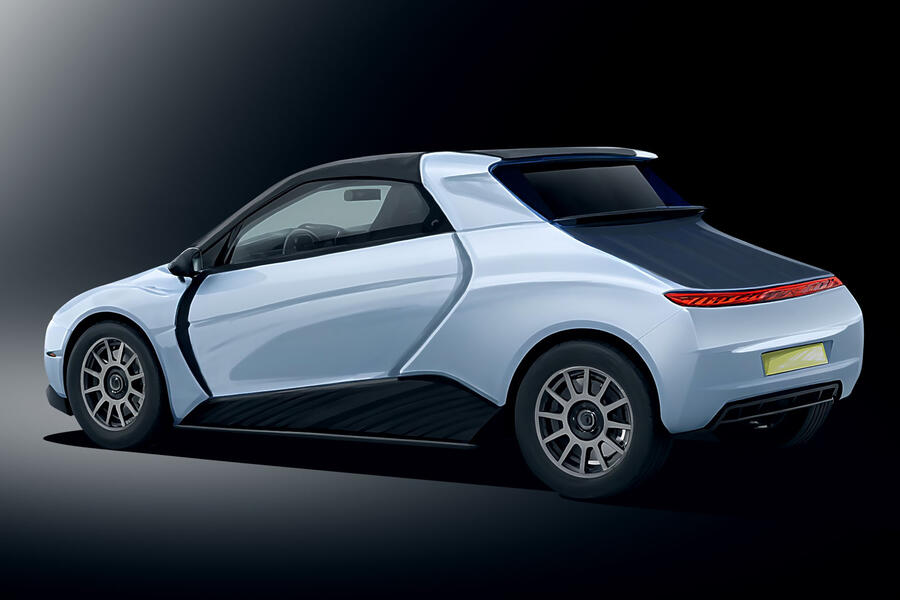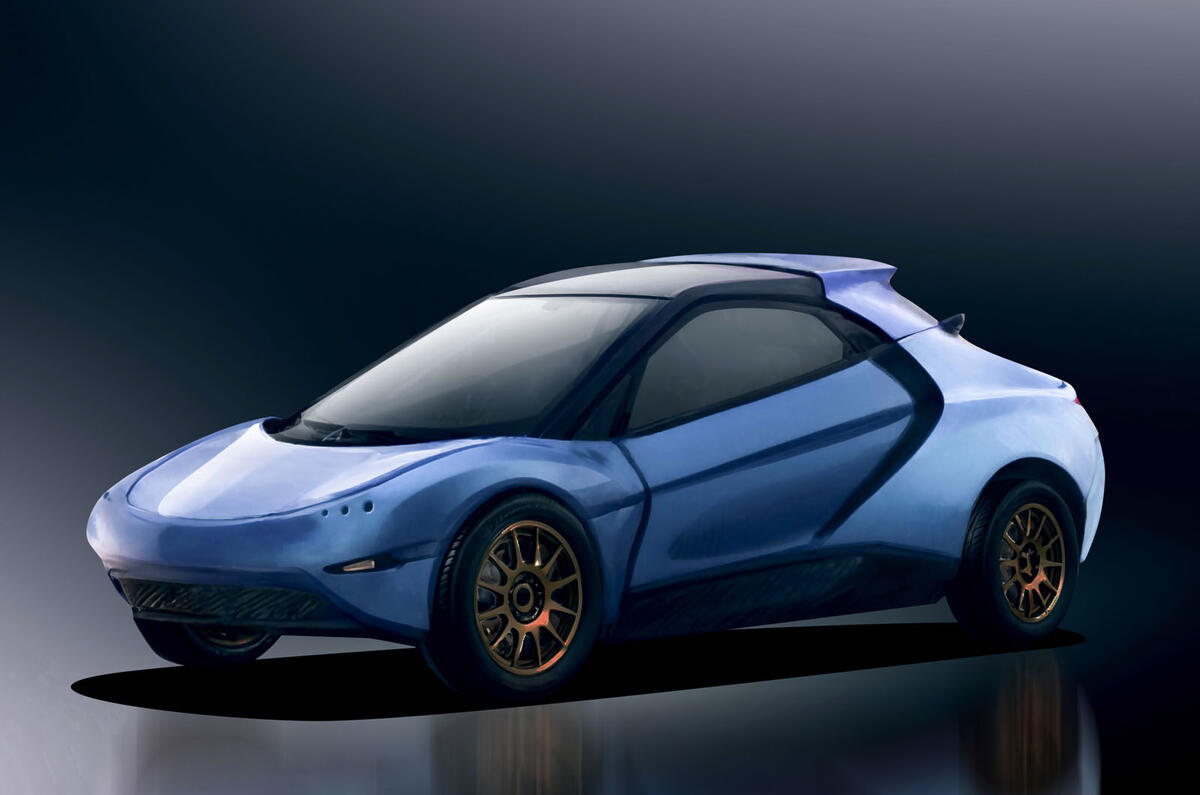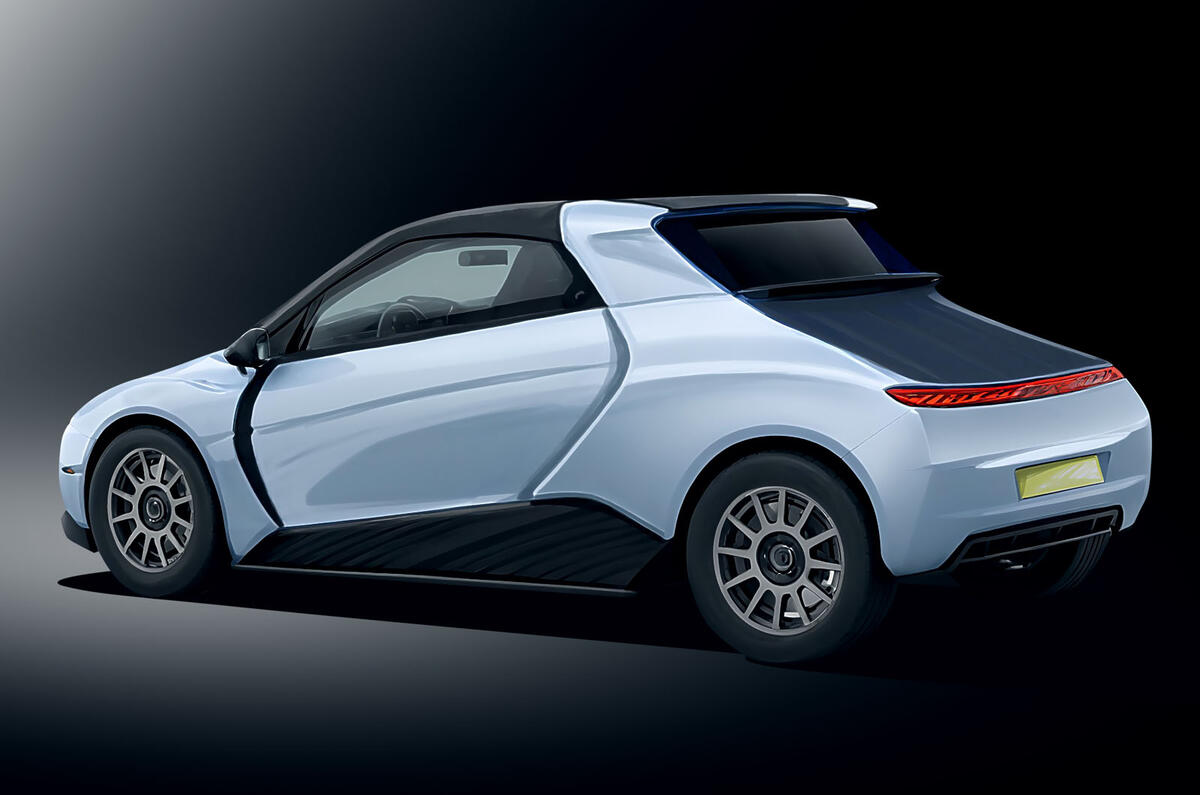Warwickshire-based car maker Mika has announced detailed plans for its sub-£15,000 electric microcar.
The EV, announced on 20 November, will go toe to toe with the Citroën Ami but is said to offer better performance, greater handling and far more crash safety, as well as an additional seat.
Created by Robin Hall, whose acclaimed Mika Meon buggy is Britain’s lightest electric car, the EV is officially classed as an L7 quadricycle and has a top speed of 56mph.
Its basic structure is an enveloping frame formed from pultrusions, the composite equivalent of the load-bearing aluminium extrusions first used in the original Lotus Elise and since adopted by other weight-conscious manufacturers including Aston Martin.
Even lighter than aluminium, these pultrusions form an extremely rigid survival cell for occupants in the Mika quad, adding crushable crash sections front and rear.
Hall claims it has similar safety standards to a modern supermini.
“Safety is our secret weapon,” he said. “Anyone can see the sense in offering a vehicle that’s simpler and lighter than other small cars, but making it more dangerous as a consequence isn’t acceptable.”
The Mika quad’s loadbearing frame supports composite outer panels and carries three people (two up front and one between them but slightly behind).
All sit above a floorpan-mounted 16kWh battery that can be upgraded to 32kWh.

Range is 80 miles or 160 miles with the extra cells.
Power comes from two very small 48V electric motors embedded in the quad’s live rear axle. Together, they produce 20bhp continuously and a peak of 40bhp.











Join the debate
Add your comment
Christ, that looks silly enough to have Gordan Murray's hands all over it.
I applaud the idea, but why make it look so silly?
I wish them luck. Would far rather hear about UK industry attempting accessible lightweight vehicles like this than increasingly tedious ultra-expensive supercars.
Oh, and why does it have to look so weird?